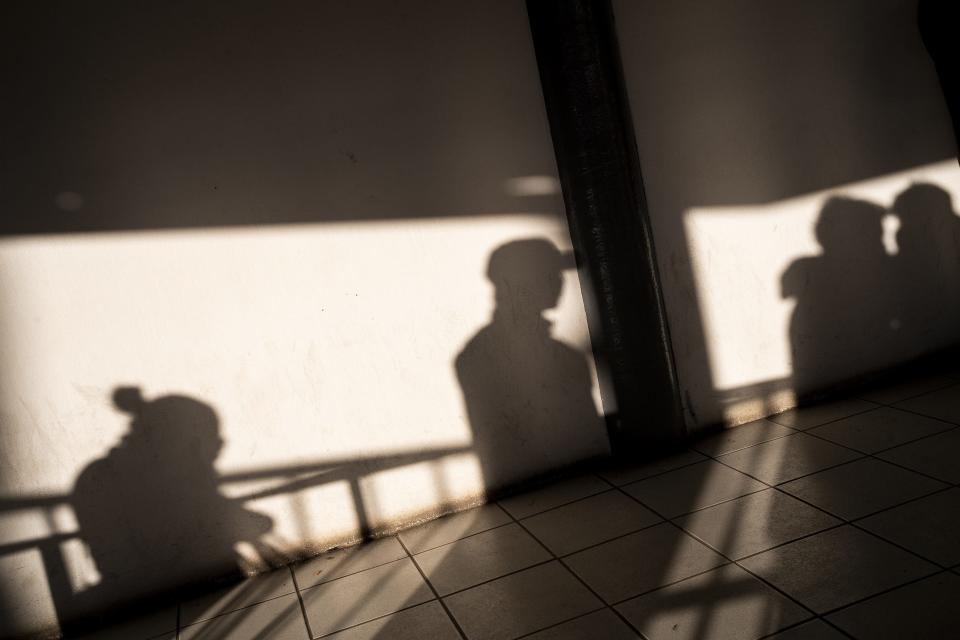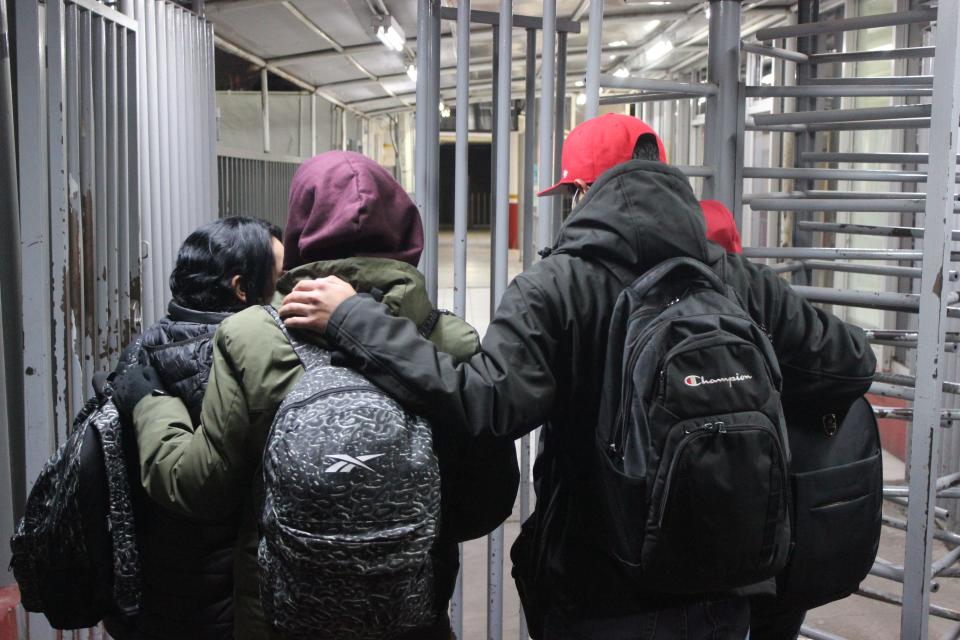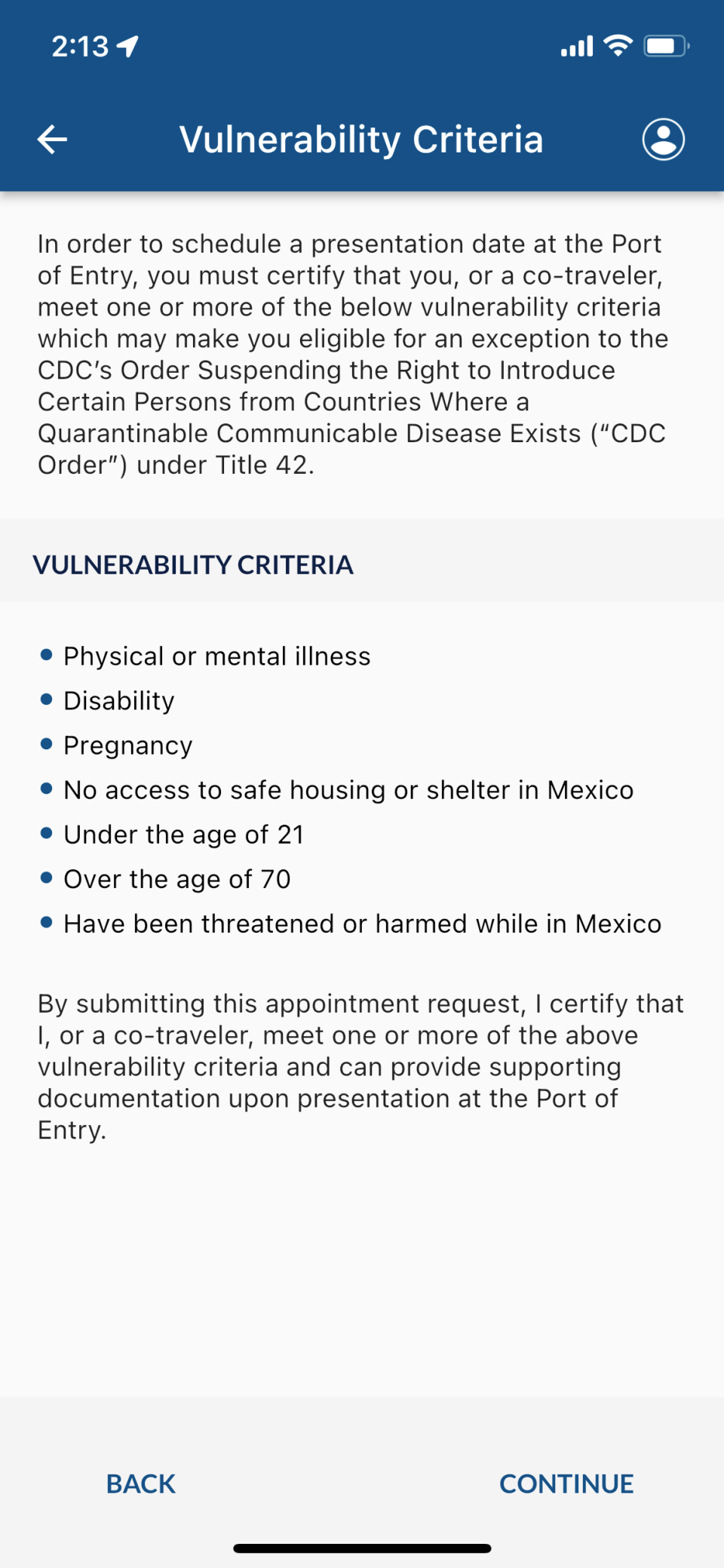Biden's new asylum policy faces criticism as officials prepare to do away with another controversial rule
- Oops!Something went wrong.Please try again later.
A new proposal from President Joe Biden's administration to restrict access to asylum in the United States already faces an uncertain future.
It has received near-uniform opposition from immigration advocates and some Democrats, and legal groups who believe it violates asylum protections enshrined in U.S. law vowed to challenge the proposed rule in court.
Coupled with an aggressive messaging campaign from Republicans in the U.S. House of Representatives critical over his border security efforts, Biden is seemingly in a no-win situation over immigration and border enforcement as he eyes a second term as president.
The publication of the proposed asylum rule last week comes at a time when the Biden administration has succeeded in lowering migrant encounters along the U.S.-Mexico border month over month, as U.S. border officials prepare to do away with a controversial public health rule that has helped them manage migrant flows at the southern border for the past three years.
"It's the worst possible strategy when you're giving your opponents most of what they want, not getting any credit from them, not getting any credit from your own side," said David Bier, associate director for immigration studies at the libertarian Cato Institute.
"And nobody's happy because they're (the Biden administration) not doing anything that pleases anyone right now," he said. "It's not unexpected that they're in this position, given the stances that they're taking."
Bier appeared on Capitol Hill on Tuesday in the latest congressional hearing Republican leaders have held about the situation at the southern U.S. border since they regained the House majority after taking office in January. All five hearings have focused heavily on criticism of Biden and the Homeland Security Secretary Alejandro Mayorkas' handling of record number of migrant encounters and fentanyl seizures at the border.
"Make no mistake, this crisis is a direct result of Secretary Mayorkas' open border policies, policies he began implementing on day one," said U.S. Rep. Mark Green, R-Tenn., the chair for House Committee on Homeland Security.

What is the new proposed rule on asylum?
The proposed rule on asylum published Feb. 21 by the U.S. Departments of Justice and Homeland Security would make migrants ineligible to claim asylum in the United States if they don't apply for one of the legal pathways available and if they don't ask for protection in a country that they passed on the way to the U.S.
The rule is proposed to go into effect in May, but whether it will be implemented is an open question. It is certain to be challenged in court.
U.S. law specifies that migrants can claim asylum regardless of their legal status and how they arrive to the country. A similar rule that DHS issued under former President Donald Trump was struck down in court as unlawful.
"If the Biden administration goes through with its proposed asylum ban, we will sue, just as we successfully sued over the Trump asylum bans. The Biden administration’s cosmetic changes cannot legally save it," said Lee Gelernt, the deputy director for the American Civil Liberties Union Immigrants' Rights Project.
Politics: Pete Buttigieg has become the GOP's favorite lightning rod for controversy. Why him?
The new regulations on asylum are proposed to take effect after May 11, when DHS has announced it will end the public health emergency over COVID-19 and the implementation of Title 42, a public health rule that both Biden and Trump used to turn away more than 2.6 million migrants at the U.S.-Mexico border since March 2020.
One of the legal pathways referenced in the asylum rule is a program DHS implemented in January that allows 30,000 migrants from four Latin American countries — Cuba, Haiti, Nicaragua and Venezuela — to apply for humanitarian parole each month. All other migrants from those four countries who do not apply for the parole program can be immediately expelled from the U.S. under Title 42.
After peaking in December, the number of migrants encountered from those four countries fell sharply, from 91,330 to 22,802 in January, according to CBP statistics.
Following procedural guidelines, the proposed rule now will be subject to public comment for 30 days. That has spurred migrant advocacy organizations and nonprofits to take action. They view Biden's plan as a near crackdown that would close off access to asylum to most migrants, especially those who may need it most.

'It is not about honoring the law,' one opponent says
More than 100 groups from around the country that form the Welcome With Dignity coalition signed on to a campaign and created a website to get as as many people to submit comments urging the Biden administration to backtrack on implementing the new guidelines.
"It's a mechanism to discourage people from coming to the border and not making asylum accessible to them. It is not about fixing the immigration system, and it is and it is not about honoring the law," said Gladis Molina Alt, the executive director for the Young Center for Immigrant Children's Rights. It is one of the more than 100 groups participating in the campaign to seek public input.

Advocates also have pointed out glitches and challenges with the Customs and Border Protection One App, a phone-based system that requires asylum seekers to make an appointment on the app to file a claim at a port of entry.
The latest quarterly report compiled by the Straus Center at the University of Texas at Austin in February described accessibility issues with the app, making it more difficult for people without a phone or strong internet access to make appointments.
The U.S. makes about 750 slots available each morning, but it's not nearly enough, most advocates agree.
Molina Alt said one of her main concerns are the unintended consequences the proposed asylum rule could have if it takes effect. She anticipates that it will lead to more family separations because parents would be barred from seeking asylum under the policy change, but any child who arrives in the U.S. alone cannot be turned away and is processed under separate guidelines specific to minors.
"That is going to force families to make that choice of if I want my children to be safe, well, then I'm going to have to let them go on their own to seek that protection on the other side of the border," she said. "While I, as a mother, I'm subjected to a different set of rules that doesn't allow me to to go over the border with my kids."
That has already been happening with Title 42, according to Molina Alt. The Young Center provides representation to unaccompanied and separated children around the U.S. The U.S. government had about 8,400 children in its custody as of Wednesday, according to the Department of Health and Human Services, which oversees the care of minors in government custody.
While those numbers are below the historic peaks in 2021 when DHS and HHS had to house minors at air bases and other large emergency spaces, Molina Alt said the system can get overburdened again because it takes longer to reunite minors with family or relatives if the parents are in another country.
Border news: House Republicans rip Biden on border security as Democrats sit out Arizona hearing
Bier with the Cato Institute said that the efficiency of the established legal pathways like the parole program for Venezuelans, Cubans, Haitians and Nicaraguans will also help determine how successful the effort to manage migration flows are at the southern border.
"If the processing times go up a lot, then people are not going to believe that this is real, and that there's a viable legal option for them," he said. "And they're going to start showing up at the border again."
Democrats in House, Senate also raise concerns
Biden has also received pushback against the proposed asylum rule from Democrats, who have long championed immigration reform and have prioritized lawful pathways for migration and citizenship. On Tuesday, Rep. Bennie Thompson, D-Miss., the ranking member on the Homeland Security committee, defended Biden's record on immigration. But even he cautioned against attempts to undermine asylum.
"Turning our backs on asylees would be turning our backs on who we are as a country," he said at the hearing. "It would also be bad for border security, since having a system for people to apply for asylum helps border management and allows law enforcement to focus on real border security threats."
Other Democrats, including New Jersey Sens. Bob Menendez and Cory Booker, New Mexico Sen. Ben Ray Luján and California Sen. Alex Padilla, issued a joint statement saying they were "deeply disappointed" the Biden administration had moved through with the proposed rule despite voicing their opposition to the idea early on.
Michael Posner worked as an assistant secretary of state from 2009 to 2013 under former President Barack Obama. He helped codify into law the Refugee Act of 1980, which laid the groundwork for the current asylum system in the United States that allowed people to apply regardless of how they arrived in the country.
He said he believed the proposed asylum rule as written is far too sweeping and would undermine the protections in place for the past 40 years. The implications also could extend beyond the United States.
"We need to recognize also the rest of the world watches what we do here," Posner said. "And if the headline goes up in May, or whenever, the United States has basically shut down the asylum system, you can be sure that other countries are going to say, 'Oh yeah, they did that, we should do the same.'"
Have any news tips or story ideas about immigration in the Southwest? Reach the reporter at rafael.carranza@arizonarepublic.com, or follow him on Twitter at @RafaelCarranza.
This article originally appeared on Arizona Republic: Biden caught in no-win situation on proposal restricting asylum access

